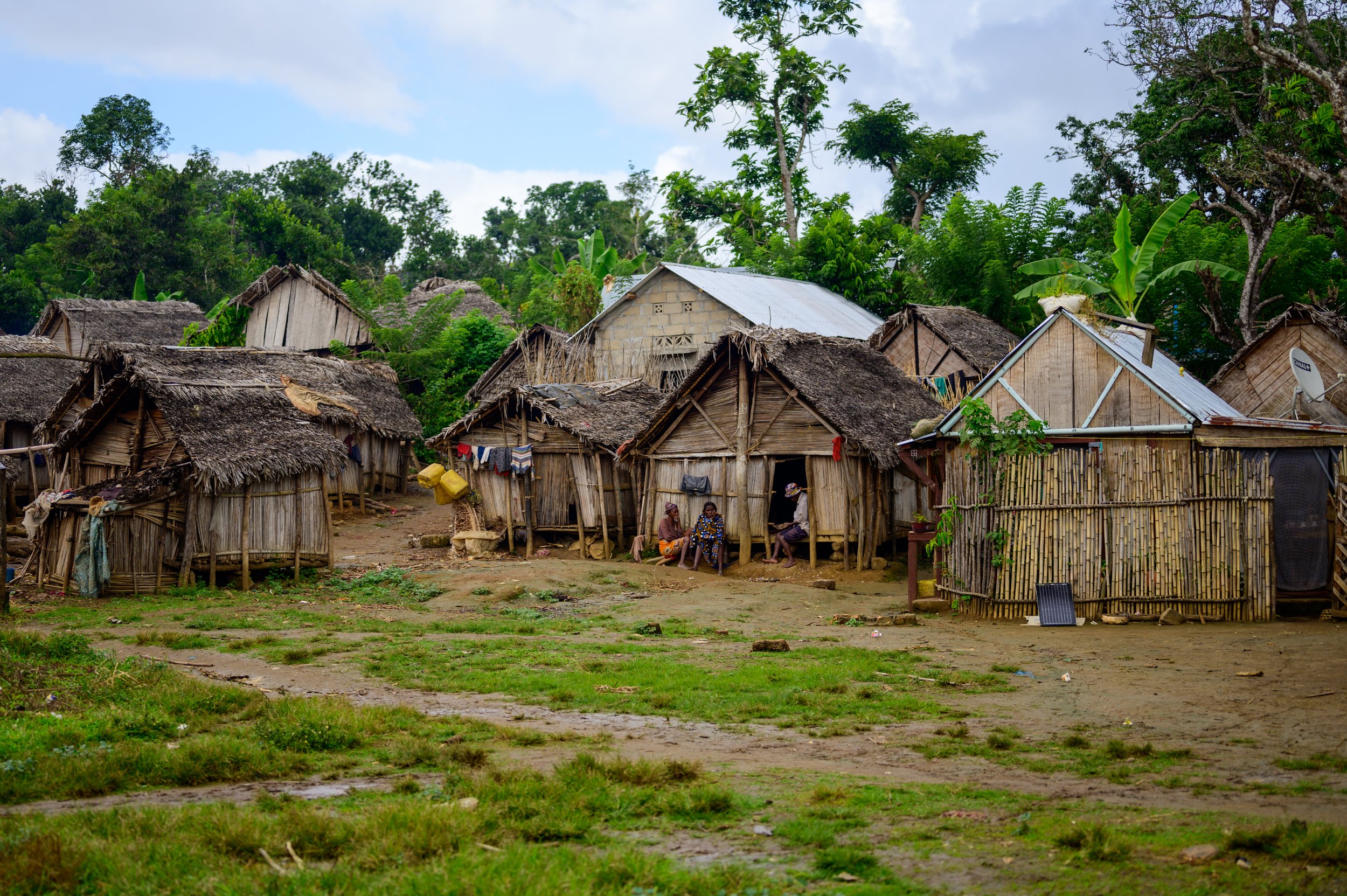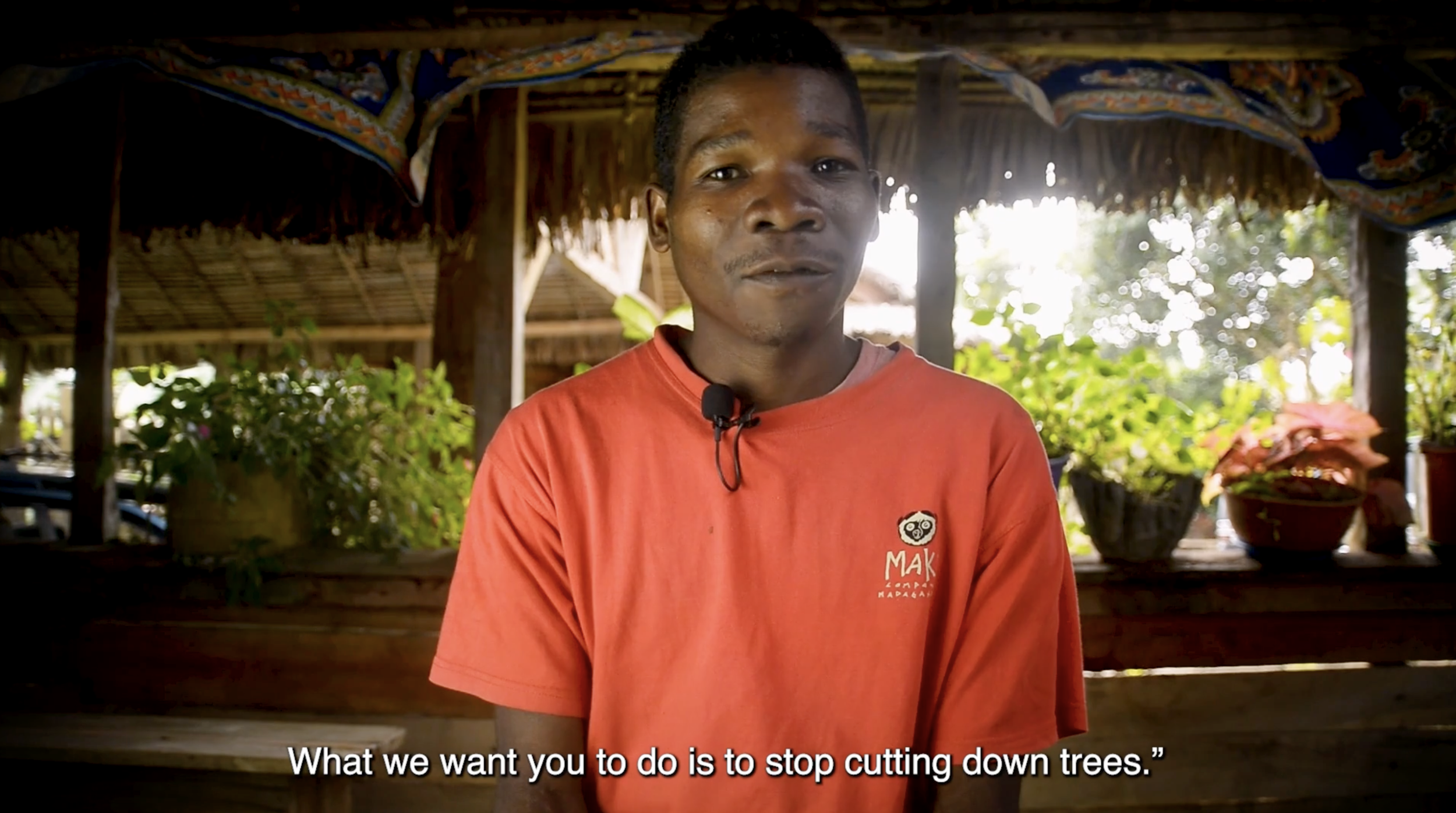
Madagascar
Since 2019, Health In Harmony has supported…
5k+
People Supported in Alternative Livelihoods
20k+
Patient Visits
62+
Hectares Reforested
Biodiversity
Covering only 0.5% of Earth’s land, Madagascar contains 5% of Earth’s species, and 80% of its species live nowhere else. Madagascar is the fourth most vulnerable country to climate change in the world.
Work to date
In 2019, Health In Harmony launched programs in the Manombo Forest, including the Manombo Special Reserve, a protected area on Madagascar’s southeastern coast. The reserve is home to eight species of lemur, all of which are endemic to Madagascar and threatened by extinction. Designed by local communities, local programs address challenges such as affordable healthcare, resilient and adaptable farming techniques, and, most urgently, hunger, to form an integrated investment approach that can allow both communities and Manombo’s unique ecosystem to thrive.
Health In Harmony Madagascar now collaborates with more than 12,000 local community members to address healthcare access, ongoing cycles of food insecurity, poverty, education, and climate resilience. The Health Guardian program, for example, trains and employs community-selected villagers, usually women, to support healthcare services like vaccinations, malaria and malnutrition treatments, as well as household medical screenings. In collaboration with Madagascar’s Ministry of the Environment (DREDD), Health In Harmony also offers a planetary health youth education curriculum to primary and secondary schools. In partnership with Vanguard Charitable, Health In Harmony is implementing climate-resilient solutions, including establishing climate-resilient nurseries to support sustainable reforestation and rainwater harvesting systems that provide clean drinking water. By capturing clean rainwater in the households, Health In Harmony aims to reduce the number of infections from contaminated sources during floods.
Scaling in Madagascar began in 2024 through a partnership with HIH Madagascar, Doctors Without Borders (MSF), and the local Malagasy NGO, Ny Tanintsika (NT). MSF and HIH have committed to a five-year joint pilot project in which HIH will work beside and assist MSF to operationalize planetary health, positioning MSF’s best-in-class medical action in Madagascar inside an intersectional framework designed by communities through Radical Listening. HIH and MSF will work beside NT, who brings over 20 years of experience working alongside communities in Ikongo, and local communities to implement community-designed water, sanitation, and hygiene (WASH), education, conservation, and agriculture projects.
Ongoing Impact
Research
Pandemic Prevention: Preventing the next pandemic, rather than responding to it, would save millions of lives and trillions of dollars. In Manombo, Health In Harmony is researching a potential solution to prevent pandemics at the source: supporting rainforest communities’ solutions to keep human and animal populations healthy. Since 2021, a team of researchers from the University of Antananarivo, University of Toamasina, Mahaliana Labs, Centre ValBio, Zoo New England, and Duke University have worked together with Health In Harmony and communities to collect samples from wildlife, livestock, plants, and people. These samples are being analyzed for the viruses, bacteria, and parasites they contain. Read more in ProPublica.
Sustainable Food Systems: In collaboration with the Madagascar Biodiversity Center, we are piloting an innovative research project on sustainable food systems within a planetary health framework. This project explores using Black Soldier Fly farming as a regenerative solution for food production and ecosystem support. Black Soldier Flies are a high-protein food source for human consumption and poultry feed. At the same time, their frass is a potent organic fertilizer that is used both for cultivating wildlings for reforestation and for growing vegetables, supporting both human health and biodiversity restoration.







